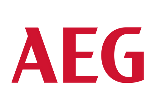
Luxembourg exports its expertise in viticulture and climate change
On 23-25 October 2018, the Luxembourg Institute of Science and Technology (LIST) took part in the first meeting of the Clim4Vitis European project “Climate change impact mitigation for European viticulture : knowledge transfer for an integrated approach” in Potsdam, Germany. Funded by the European Union’s Horizon 2020 research and innovation programme, the project comprises partners from Portugal, Germany and Italy, with LIST being both the only representative from Luxembourg and responsible for planning and ensuring the future sustainability of the project partnership.
In this three-year project, the common objective of the partners is to strengthen the Portuguese Universidade de Trás-os-Montes e Alto Douro’s (UTAD) capacity and performance in its research focusing on viticulture and climate. UTAD can notably rely on LIST’s expertise to boost its competences in grapevine modelling, as well as in methods and tools for assessing the impact of climate change on European viticulture and on grapevine productivity, as well as quality attributes and the risk of diseases and pests. Indeed, LIST researchers have proven skills in the study of the bio-geophysical functioning of agro-environmental systems in general, and in the multifactorial interactions between environmental conditions, grapevines, grape pests and diseases, as well as grape-growers’ interferences, specifically.
Two existing viticultural models at LIST
Thanks to a number of research projects in the field of agriculture and viticulture, and in close collaboration with the Luxembourg’s Wine Institute (IVV), LIST researchers have already developed two viticultural models focusing on the grape phenology model and yield.
The high-resolution grape phenology model is a temperature-driven viticultural model including three temperature thresholds. It allows the study and prediction of the periodic grapevine life cycle events. The model data was calibrated thanks to testing on sites in Luxembourg, Germany, Austria and Italy. As for the yield model, it uses a technique known as a “window-pane” analysis approach to determine the duration and temporal windows where specific environmental variables and annual grape yields are closely linked. The efficiency of the model has been proven on two grape varieties in Luxembourg vineyards.
Long-Term experience in Luxembourg
Apart from the development of these two viticultural models, LIST has extensive experience with vineyards and research in the field of viticulture in Luxembourg, having worked in close collaboration with the IVV for several years. The two partners even recently shared a booth at the Intervitis Interfructa Hortitechnica fair, the biggest viticultural fair in Central Europe held in Stuttgart, Germany, from 4 to 6 November 2018, a proof if ever it were needed of a successful cooperation.
For further information about the latest advancements in the research conducted between IVV and LIST, see the news article “Research conducted in Luxembourg vineyards”, published on 13 September 2018.








